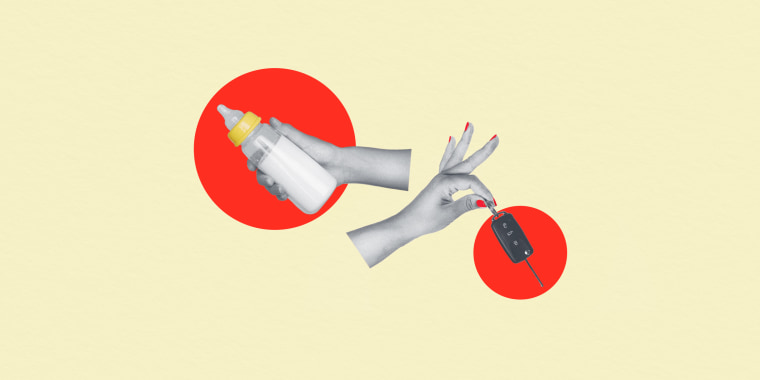“Cate’s been such an easy baby,” my friend told me as she described her second-born’s sunny disposition one afternoon at the park.
I watched my own second-born child, a toddler, as he ran around the playground. I gripped my cup of coffee as I waited for his next catastrophe: pushing another child, melting down on a too-high slide, falling from an inappropriate climb, or eating mulch.
“Just wait,” I said, nodding toward my wild child. “He was a chill baby, too.”
Later that evening, after I’d tucked my children into bed and tried to fall asleep myself, I realized what I’d done: I just waited my dear, newly postpartum friend.
I, like every other mother on the planet, hated being just waited. Just wait until he’s talking. Just wait until he starts school. Just wait until he’s a teenager.
Just waiting someone tries to steal present happiness by planting anxiety about a harrowing future around the corner. It’s not a kind thing to impose upon anyone — and I’d just done it without thinking to my friend.
The next day, I texted an apology to my friend, and she was gracious in her response. But as I went about the day parenting my difficult toddler, reinforcing boundaries as he climbed the furniture and squeezed toothpaste all over the floor, I realized something: My just wait was not motivated by meanness. It was my way of confiding something hard about my own life. And in this realization, I started to reconsider the motivations of those who had just waited me in the past.
Even though we all hate hearing just wait, it’s still more socially appropriate than, say, unloading our pain onto acquaintances. While I might make small talk at playdates about my children’s milestones, I’m not likely to include the part where I’m afraid my children aren’t meeting theirs because I let them use screens too often. Or because we don’t get enough outdoor time. Or because no matter how much meditation I do before bed, I still struggle with being a present parent.
In the same way that we all know it’s not socially savvy to respond to the question, “How are you?” with a candid response, there are very few face-to-face outlets for parents to talk about the insecurities and difficulties that come with child rearing. And this lack of deep connection comes with severe consequences: the loneliness epidemic extends to parents, too, and the health consequences are as severe as smoking.
As I reflected upon my own gaffe with my friend, I thought back to an encounter I had with an older woman at church several weeks before.
“Just wait until he starts extracurriculars,” she said as I spoke about how I struggled to balance a toddler’s nap schedule with the rest of our family’s commitments. Though I resented what I perceived as negativity and cynicism directed toward me, I reevaluated my encounter with her:
What if this was her way of confiding something difficult about her life? I thought to myself. Maybe she’s looking for an outlet to talk about how hard her own children’s activities have been for her. Maybe her just wait has nothing to do with me at all. Maybe this is her imperfect attempt at connection.
Taking on this mindset — that others are looking to share rather than harm — has helped me reframe many other encounters that I may perceive as offensive or rude. Really listening to another person’s just wait helps me cultivate empathy, rather than resentment, toward other parents.
While I appreciate those who share the positive events awaiting me in the parenting journey — the first smile, the first full night’s sleep, the first walk, the first dance — when someone just waits me with something negative, I’m trying to perceive those comments as information rather than affronts. When an older parent threatens me with the horror that is the teenage years, I could choose to take offense. Or I could consider it the beginning of a conversation: a glimmer of their humanity, an opportunity to be present with another person, a person just as imperfect and hungry for meaningful relationships as myself.
